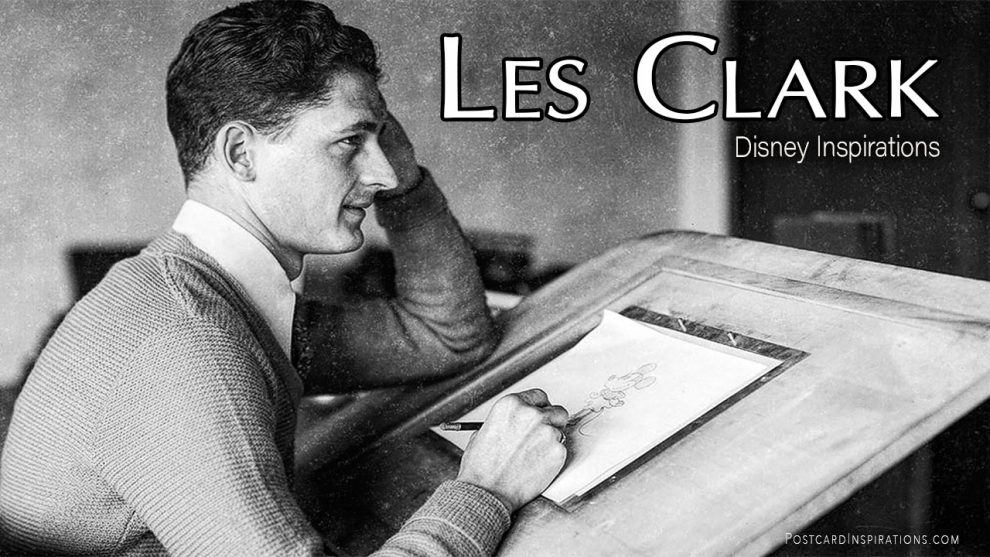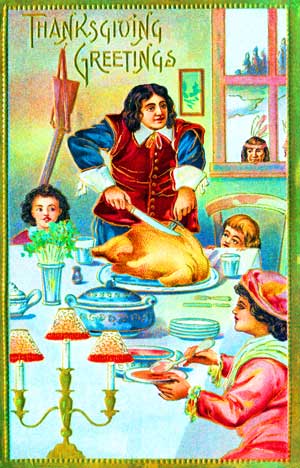Les Clark was born in 1907 in Ogden, Utah to a large family. He was the eldest of twelve children of his parents, James Clark and Lute Wadsworth. His father James was a carpenter by trade. The family moved to Salt Lake City around 1910. According to the 1920 US Federal Census, they were living in Twins Falls, Idaho. In 1930, Les’s family lived in Los Angeles, California. So, it seems his family moved around a lot, probably so that his father could find enough well-paying carpentry work to support his wife and all those children.
Once in Los Angeles, Les was old enough to go to high school, and he attended Venice High School. While a student there, he worked at an ice cream parlor for a summer job, and that ice cream parlor happened to be close to Walt Disney Studios. Because of the proximity of the shop to the studios, Walt Disney and his brother Roy were frequent patrons of the ice cream shop. Walt even once took notice of the lettering young Les did on the shop’s menus, and he personally complimented Les on them.
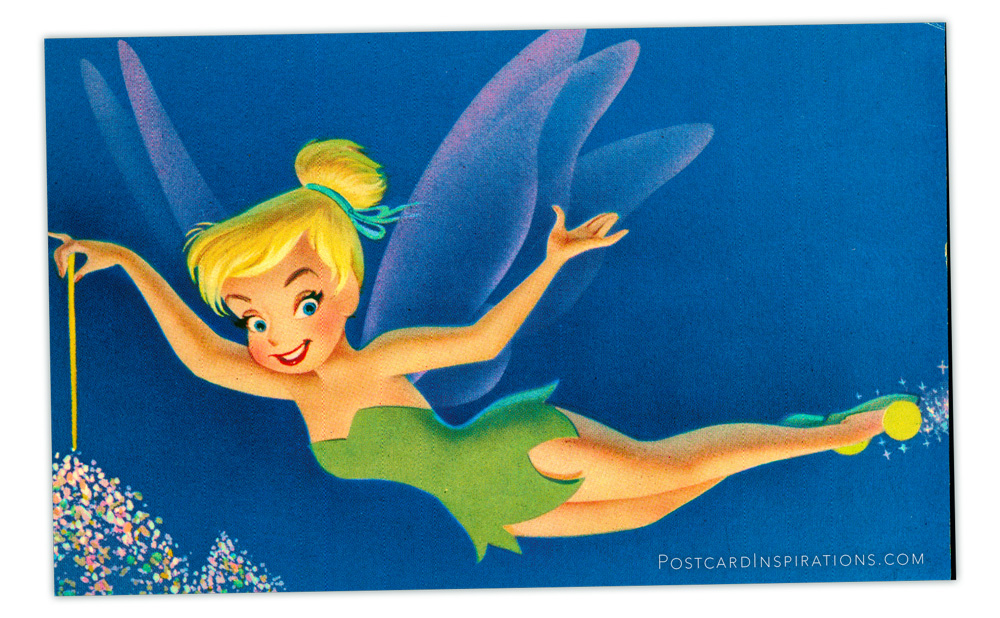
Tinker Bell (postcard) Sprinkles magic Stardust over the wonderful world of Fantasy called Disneyland — to make it truly “the happiest place on earth.”
That was enough encouragement for Les to think that maybe he could get Walt to hire him. Walt Disney Studios was starting to gain some genuine prestige in the entertainment industry around that time, and a job at the studios would undoubtedly pay well and put Les in touch with people who could help him build a career. It took a bit, but Les eventually gathered up his courage to ask Walt for a job.
Walt was known for being a man who was always looking for new talent, and so he was receptive of Les’s request. Walt told Les to bring some of his drawings to the studio, so Walt could see what they looked like. Les did this, and Walt personally evaluated his work. Walt told Les he had a good line, and offered him a job on the spot, inviting him to come to work that Monday. Les did just that.
That Monday happened to be the Monday after Les graduated from high school. The position at the Walt Disney Company, which Les began in 1927, was supposed to be a temporary one. Les ended up being the first of Walt’s famous “Nine Old Men,” and spent his entire career with the company.
While working for the Walt Disney Company, Les got married to a woman named Miriam, and they had two children together—a son named Richard and a daughter named Miriam.
When Les began work for the Walt Disney Company, he started as a camera operator, and also did ink and paint on animations. Eventually, he was moved to work under the direct tutelage of Walt’s good friend and early business partner, Ub Iwerks. Les was present during the development of the Micky Mouse character. While Micky Mouse was being developed, Les was promoted to inbetweener, which was a low-level animator who drew scenes between the scenes drawn by more senior animators. As an inbetweener, Les did a scene for Micky’s debut animated short, Steamboat Willie.
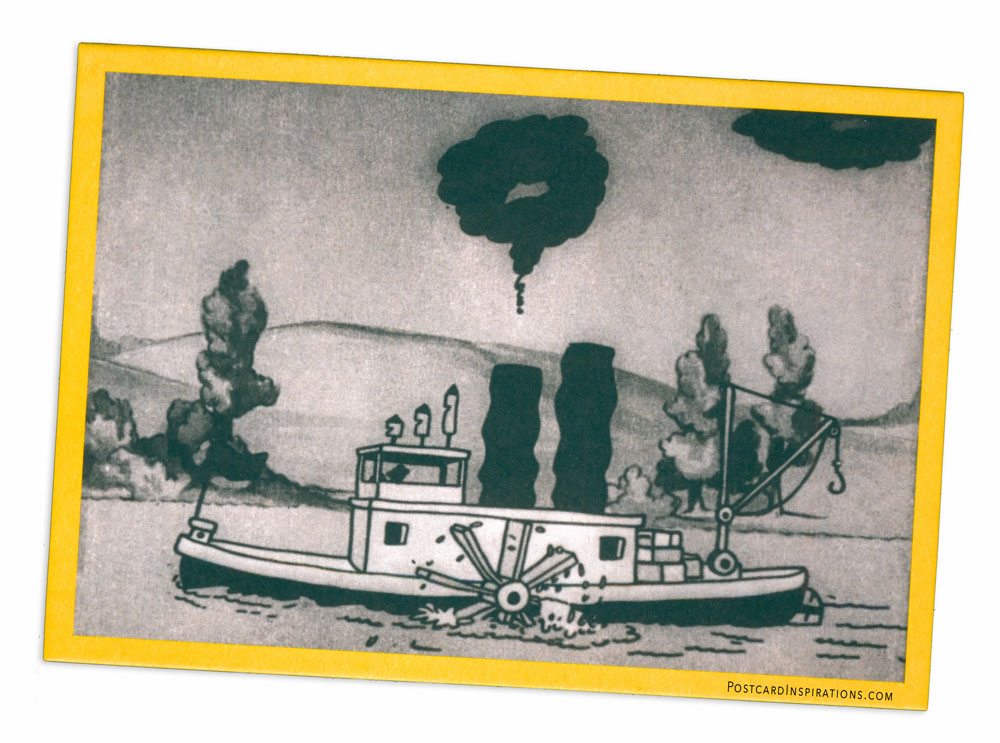
After working on this project, Les was promoted to a full animator position, and his first project in this position was on a Silly Symphony called The Skeleton Dance. After Ub Iwerks left the company, Les scored the lead animator position on the Micky Mouse character. Knowing he had a good opportunity here, Les took art classes while working for Disney, to hone his craft. As his drawings became even better, he was given the important task of animating the Seven Dwarfs on the Snow White movie. This was Les’s springboard to Disney success, and he went on to animate iconic Disney characters like Pinocchio, Cinderella, Alice in Wonderland, and Tinker Bell.
Les had a particular talent for timing animation to musical scores, and to convey genuine emotion through animation.
Les continued with the Walt Disney Company for nearly half a century, retiring in 1975. At the time he retired, Les was the “longest continuously employed member of Walt Disney Productions.” Because the job offer Walt gave him changed Les’s life for the better in so many ways, he gave Walt unwavering loyalty and a determination to always be improving his own work. He wanted to produce the highest quality animation possible for Walt and the Walt Disney Company.
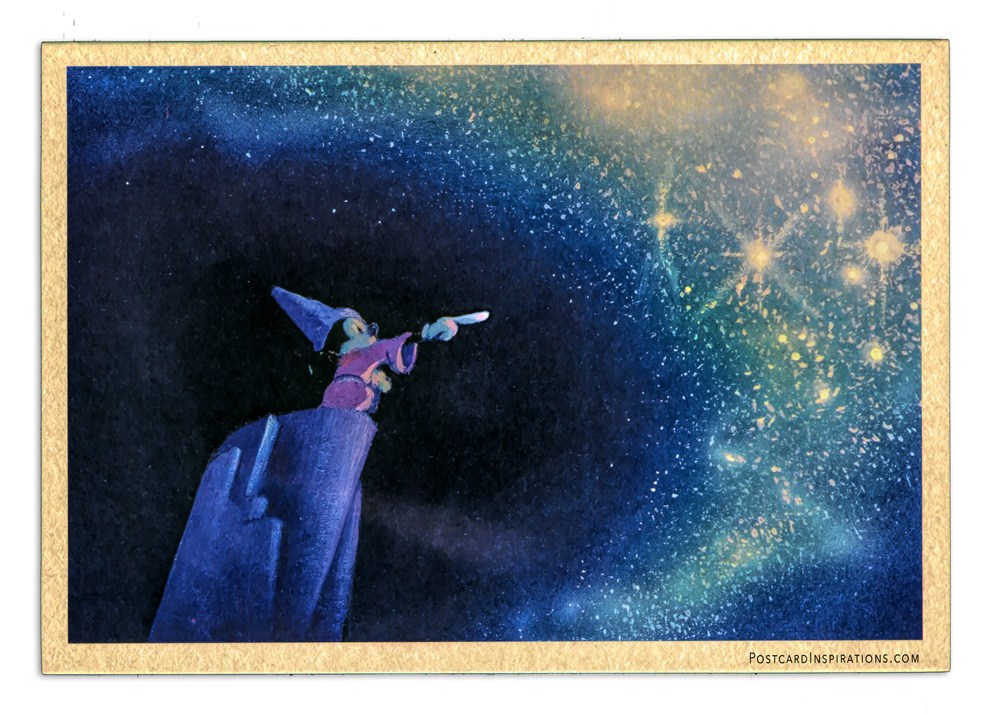
Unlike a lot of animators at Disney and other animation studios, Les learned the animation trade from the ground up. He was happy to take a low-level job at the company when he first started there and worked his way up with a cheerful attitude that was one of his personal hallmarks.
Les even outshone his early mentor at the company, Ub Iwerks. Ub had been known for being able to produce a large number of animation cells quickly. Les was able to do that, too, but did it with a far superior draftsmanship and versatility to that of Ub. Still, because Ub was his early mentor, there were always traces of Ub’s influence in Les’s work. An example of this influence that Disney scholars often point out is Les’s animation of the little train to Baia in the animated film, The Three Caballeros, in 1945. Ub’s animation style was magical and cartoony, and the train is a perfect example of how Les adopted this own style into his own. Not only was the train a showcase of Ub’s influence on Les’s animation skills, but it also showcases Les’s talent for synching animation to musical scores, as the train chugs along on crayon rails to a cheerful samba as it goes through a set of stylized jungle landscapes.
Les went from working in an ice cream shop as a high school kid to being one of Walt Disney’s most valuable animators, and the first of the famous “Nine Old Men,” who are the animators of legend at the company. He made a great career for himself with the company and left his mark on film animation for probably centuries to come. Les Clark passed away on September 12, 1979, in Santa Barbara, California.


